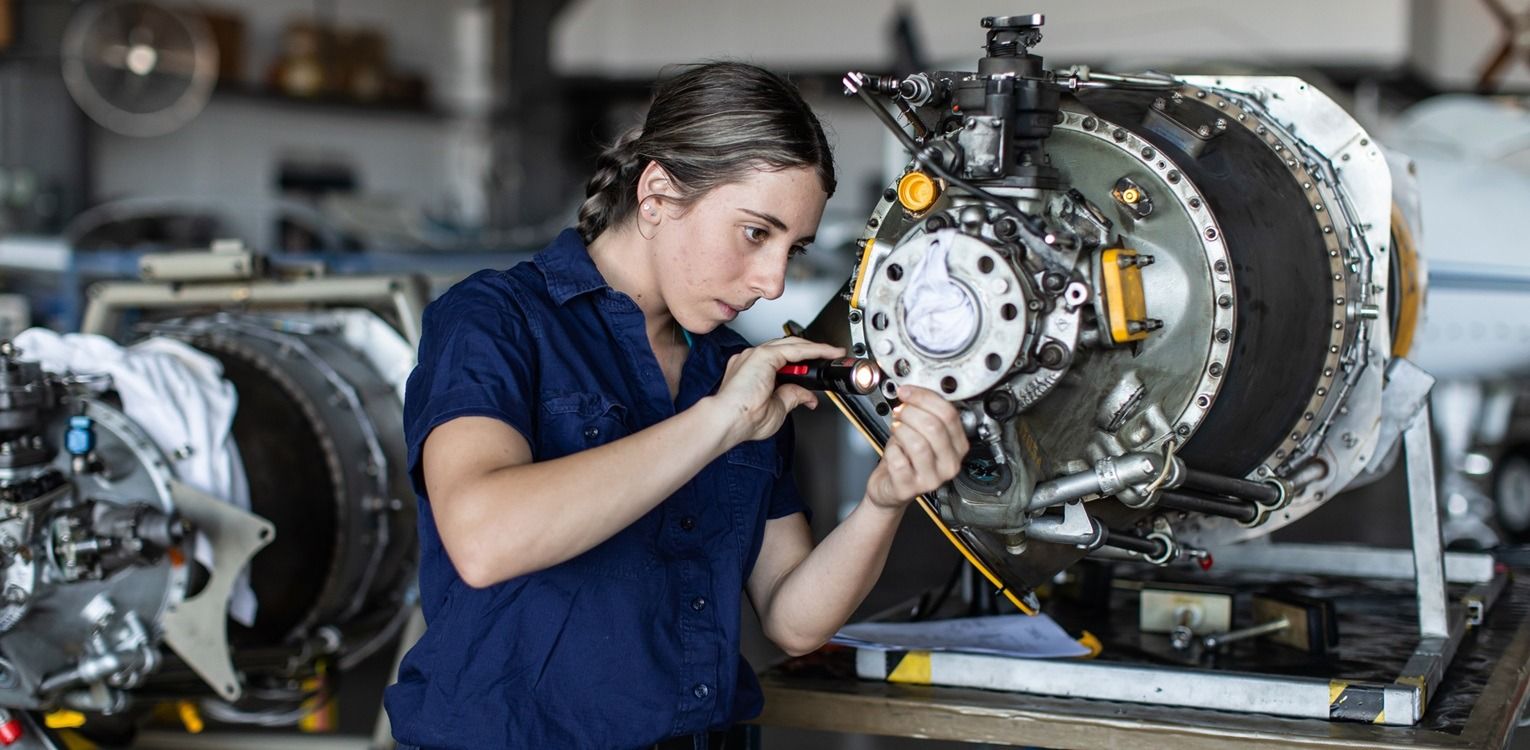Mechanical Engineers work at the heart of many industries, designing mechanical components, testing prototypes, and ensuring complex systems operate efficiently and safely. Whether working on renewable energy systems, automotive manufacturing, HVAC installations, or robotics, Mechanical Engineer roles provide variety, challenge, and long-term career potential.
The UK engineering sector continues to grow, with employers seeking both experienced professionals and new graduates. Many organisations offer structured training, professional development support, and the chance to gain chartered status through the Institution of Mechanical Engineers (IMechE).
Working as a Mechanical Engineer means combining practical knowledge with analytical thinking. You may work on design software, collaborate with production teams, visit client sites, or oversee installations, often within multidisciplinary environments where innovation and safety are key.
Explore Mechanical Engineer Jobs by Sector
While the core engineering principles remain the same, Mechanical Engineer jobs can differ significantly depending on the industry, project type, and working environment. Below are some of the most common sectors hiring Mechanical Engineers in the UK.
Manufacturing and Production
A large proportion of Mechanical Engineers work within manufacturing, supporting everything from automotive and aerospace production to precision engineering and consumer goods. Roles may include maintaining and improving production lines, designing mechanical systems, and troubleshooting performance issues. These positions often involve collaboration with design engineers, maintenance technicians, and quality teams.
Construction and Building Services
In construction and building services, Mechanical Engineers design and oversee the installation of heating, ventilation, and air conditioning (HVAC) systems, as well as plumbing and fire safety systems. These roles often focus on energy efficiency and sustainability, making them ideal for engineers interested in reducing environmental impact.
Energy and Utilities
Mechanical Engineers play a vital role in the energy sector, from maintaining turbines in power plants to developing renewable energy systems such as wind and hydroelectric installations. Engineers in this field may work on-site, performing maintenance and inspections, or in design offices developing new energy solutions.
Transport and Automotive
Mechanical Engineers are key to designing, testing, and improving vehicles and transport systems. Automotive roles may involve working on engines, chassis, and safety systems, while rail and aerospace engineers focus on performance, aerodynamics, and material innovation. This sector suits those with strong technical and analytical skills who thrive in fast-moving, highly regulated environments.
Maintenance and Facilities Engineering
Many businesses employ Mechanical Engineers to manage and maintain mechanical systems in factories, hospitals, data centres, and large commercial premises. These roles often involve preventative maintenance, breakdown response, and system upgrades, ensuring critical equipment operates reliably and safely.
Types of Mechanical Engineer Contracts
There’s a wide range of contract types available for Mechanical Engineer jobs, depending on your level of experience and preferred working pattern.
Full-Time Mechanical Engineer Jobs
Full-time roles offer consistent hours, steady income, and the opportunity to work on long-term projects. Many employers provide structured career development, training opportunities, and benefits such as pensions, healthcare, and professional membership support.
Contract and Project-Based Roles
Contract engineering jobs are common for major infrastructure or design projects. They allow experienced engineers to work on specific phases of a project, from design through to commissioning, and can be highly rewarding both financially and professionally.
Graduate and Entry-Level Opportunities
Engineering graduates can enter the profession through graduate schemes, internships, or junior roles that offer mentorship and technical training. These roles are ideal for developing design skills, learning software such as AutoCAD or SolidWorks, and building practical experience in real-world environments.
Part-Time and Flexible Engineering Work
Although less common, part-time and flexible engineering roles are becoming more available, especially in consultancy or maintenance positions. These roles can suit those seeking work-life balance while maintaining a professional engineering career.
Skills and Requirements for Mechanical Engineer Jobs
To work as a Mechanical Engineer, you’ll typically need a degree in mechanical engineering or a related discipline such as manufacturing, materials, or mechatronics. Some roles may accept a foundation degree, HND, or apprenticeship combined with relevant experience.
Employers generally look for:
- Strong understanding of mechanical systems and principles
- Proficiency in CAD and 3D design software
- Problem-solving and analytical thinking
- Project management and communication skills
- Knowledge of health, safety, and quality standards
- Practical understanding of manufacturing processes and materials
Professional registration with the IMechE as an Incorporated or Chartered Engineer (IEng or CEng) can enhance career progression and earning potential. Some roles, particularly in regulated sectors like energy or defence, may require additional security clearances or safety certifications.
Mechanical Engineer Jobs FAQ
What Does a Mechanical Engineer Do?
Mechanical Engineers design, develop, and maintain mechanical systems used in industries such as energy, construction, manufacturing, and transport. They may work on everything from engines and machinery to heating systems and robotics.
What Qualifications Do I Need?
Most Mechanical Engineer roles require a degree in mechanical engineering or a related field. Some technicians and maintenance roles accept vocational qualifications or apprenticeships with relevant experience.
How Much Do Mechanical Engineers Earn?
Salaries typically range from £30,000 to £55,000 per year, depending on experience, qualifications, and industry. Senior or chartered engineers can earn £60,000 or more, particularly in energy, aerospace, or project consultancy roles.
Can I Progress from a Mechanical Engineer Role?
Yes. Many engineers move into senior positions such as Project Engineer, Design Manager, or Engineering Consultant. Others choose to specialise in areas like automation, sustainability, or materials science. With professional accreditation and experience, progression opportunities are excellent across both technical and managerial paths.



